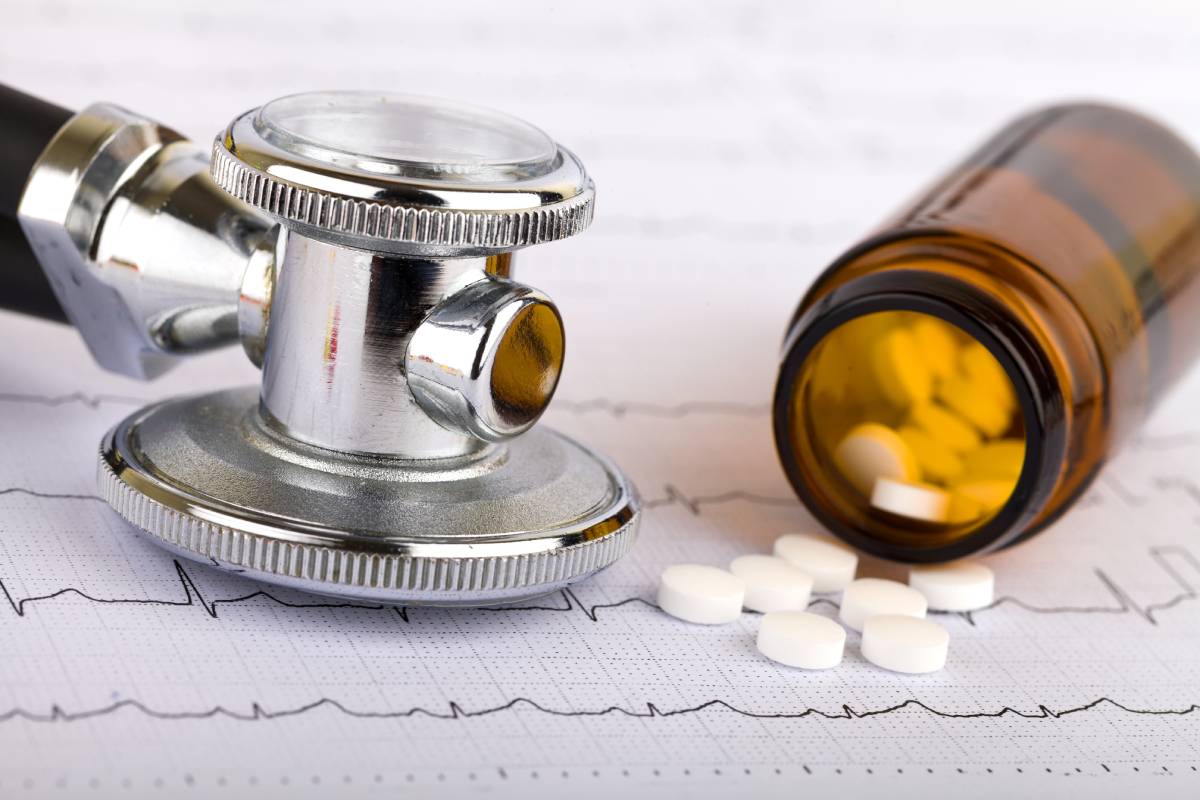Aspirin is commonly used to reduce fever and/or relieve mild to moderate pain, such as from headaches, menstrual cramps, arthritis, and muscle aches, similar to other non-steroidal anti-inflammatory drugs (NSAIDs). However, it also has significant anti-platelet properties, leading to its use by many people to prevent heart attack or ischemic stroke, which are caused by a clot blocking blood flow to part of the heart and brain respectively (MedlinePlus, Mayo Clinic). Based on available data, leading medical organizations established guidelines for what populations would benefit from daily low-dose aspirin for heart attack prevention. Recent research has led to more conservative guidelines for older adults, due to a growing recognition and cautiousness of the increased bleeding risk associated with aspirin (Mayo Clinic, Zheng & Roddick).
A physician may recommend aspirin for prevention purposes for adults aged 40 to 59 who are considered to be at high risk of experiencing a heart attack (or ischemic stroke). Risk factors include a prior heart attack, stroke, or mini-stroke, a stent, coronary bypass surgery, and angina (MedlinePlus, Mayo Clinic). However, the anticoagulant effect occurs systemically, leading to increased bleeding in cases of injury, as well as an increased risk of spontaneous bleeding (Mayo Clinic). A large meta-analysis that included data from over 160,000 patients concluded that “the use of aspirin in individuals without cardiovascular disease was associated with a lower risk of cardiovascular events and an increased risk of major bleeding” (Zheng & Roddick). This risk outweighs the benefit for many older adults. As a result, some guidelines caution that those age 60 or older without cardiovascular disease should not participate in a daily regimen of aspirin for heart attack prevention. Other guidelines continue to have a threshold of 70 years – those aged 60 to 69 should discuss the benefits and potential harms of aspirin with their physician (Mayo Clinic).
Aspirin, also known as acetylsalicylic acid, interferes with normal clotting processes in blood. It and other NSAIDs inhibit cyclooxygenase (COX), an enzyme that leads to the production of prostaglandins, which are involved in inflammation, pain, swelling, and fever. COX is also involved in other processes, the disruption of which leads to the side effects associated with aspirin, such as gastric irritation. Though researchers aim to develop better anti-inflammatory medication that selectively targets COX-2 rather than affecting both COX-1 and COX-2 to reduce adverse gastrointestinal effects, studies show that COX-2 inhibitors may increase the risk of clots. As a result, aspirin, which is a nonselective COX inhibitor, remains important for heart attack prevention (Vane & Botting).
As with all medication, people who take aspirin regularly must be careful not to take other drugs with interfering or compounding effects unless directed to by their physician. Such medications include anticoagulants, ACE inhibitors, beta blockers, diuretics, corticosteroids, and some antidepressants. Ibuprofen also generally should not be taken concurrently (MedlinePlus, Mayo Clinic). In addition, some herbal and dietary supplements may increase bleeding risk when taken alongside aspirin. Due to the anticoagulant properties of the drug, it is also important that surgeons are aware of patient’s ongoing aspirin therapy to preempt dangerous bleeding during surgery (Mayo Clinic).
Current data demonstrates the benefit of aspirin as a heart attack prevention method in a select, high risk population. However, studies also highlight the potential harms of the medication. Individuals should always seek the advice of their healthcare provider before starting or stopping an aspirin regimen. Additional research will continue to improve the resources available for reducing the risk of ischemic events.
References
Mayo Clinic Staff. Daily aspirin therapy: Understand the benefits and risks. Mayo Clinic. October 15, 2021. Available: https://www.mayoclinic.org/diseases-conditions/heart-disease/in-depth/daily-aspirin-therapy/art-20046797
MedlinePlus. Aspirin. Updated May 15, 2021. Available: https://medlineplus.gov/druginfo/meds/a682878.html
Vane, J. R. & Botting, R. M. The mechanism of action of aspirin. Thrombosis Research. 2003;110(5-6):255-8. doi: 10.1016/s0049-3848(03)00379-7.
Zheng, S. L. & Roddick, A. J. Association of Aspirin Use for Primary Prevention With Cardiovascular Events and Bleeding Events. JAMA. 2019;321(3):277-287. doi:10.1001/jama.2018.20578.
